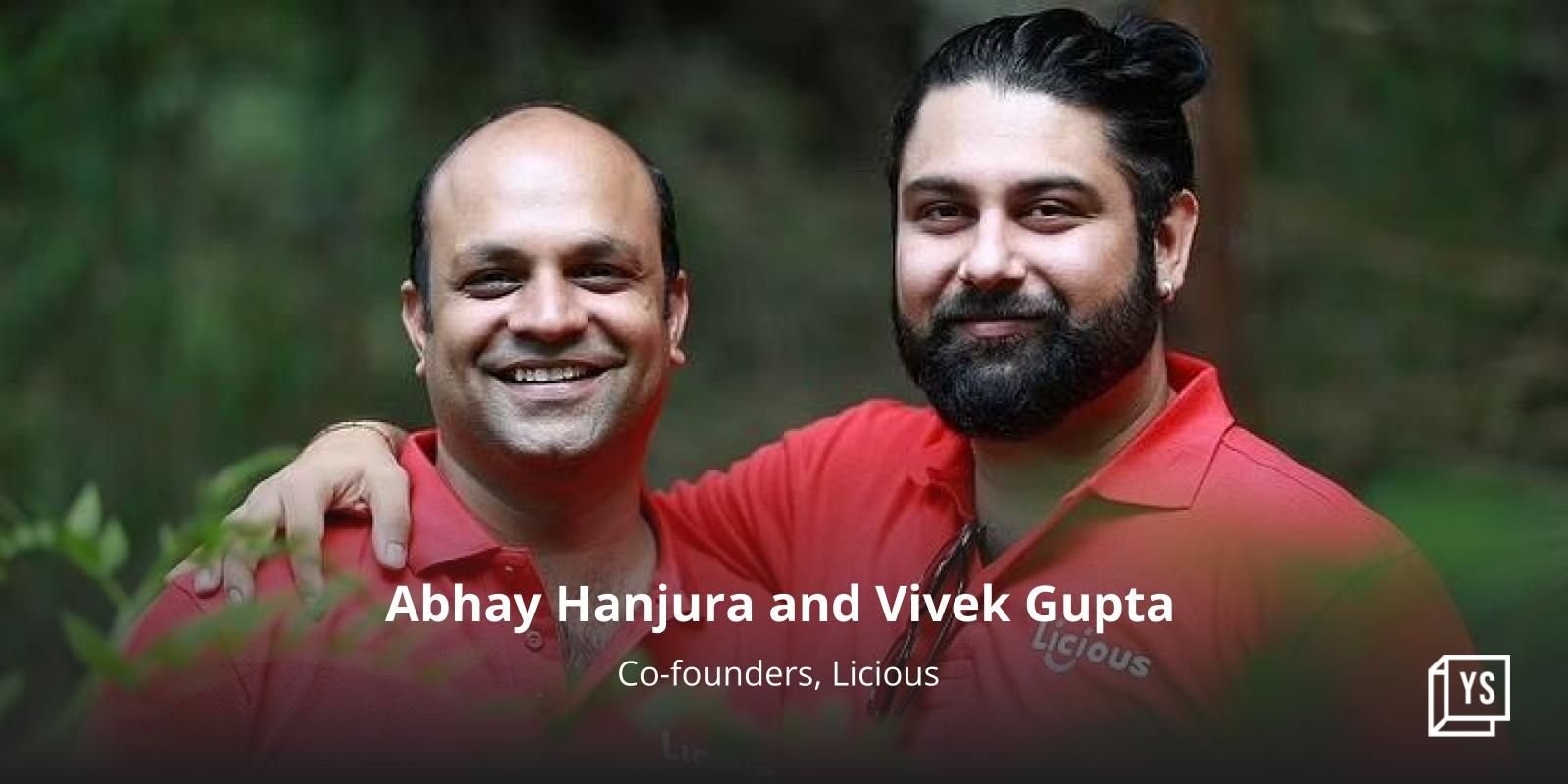Startup
EQT-backed Indium acquires majority stake in Experion

Private equity EQT backed-, an AI-driven digital engineering firm has acquired a majority stake in Experion, a global product engineering services company.
By utilising Experion’s end-to-end product engineering capabilities, Indium aims to help clients across sectors such as financial services, healthcare, manufacturing, retail, automotive, and transportation.
The acquisition’s financial details remain undisclosed.
“The synergies and complementary capabilities of Indium and Experion will meaningfully amplify our ability to deliver superior digital and product engineering solutions to customers. We are confident of unlocking multiple new opportunities with both existing and new clients, and have set a revenue target of $150 million for the next financial year,” said Ram Sukumar, CEO and Co-founder, Indium, according to a press release.
Additionally, the acquisition will expand the Chennai-based firm’s geographic footprint and workforce to 5,000 employees globally.
Founded in 2006, Experion offers capabilities in product strategy, engineering, cognitive computing, platform engineering, and experience design. The firm helps clients design, develop, deploy, and maintain products and platforms with proprietary IP.
“We are thrilled to be part of the EQT-Indium family, and Experion stands to benefit immensely from Indium’s market presence, diverse range of offerings and extensive experience working with global enterprises,” said Binu Jacob, CEO and Co-founder, Experion Technologies.
The company has also recorded a revenue growth of 30% CAGR over the past four years. Some of its clientele includes major enterprises in automotive, insurance, mining, and transportation industries, as well as ISVs and startups across North America, UK, Europe, Australia and Japan.
In December 2023, Hong Kong-based BPEA EQT Mid-Market Growth Fund acquired a majority stake in Indium Software from existing shareholders.
Startup
Rich vs. Poor Nations: Nobel Economists Unveil the Hidden Power of Institutions

The Nobel Memorial Prize in Economic Sciences was awarded to Daron Acemoglu, Simon Johnson, and James Robinson for their revolutionary research on the relationship between institutions and economic inequality. Their theory offers a fresh perspective on a question that has puzzled economists and historians for decades: Why are some nations rich while others struggle with poverty?
The Big Idea: Institutions, Not Geography, Drive Prosperity
For many years, theories about wealth inequality pointed to factors like geography, culture, or even natural resources. Acemoglu, Johnson, and Robinson, however, shift the focus to institutions—the man-made political and economic systems that govern how societies function. Their research shows that the quality of institutions—how inclusive or extractive they are—determines whether a nation prospers or worsens in poverty.
Their findings challenge long-held assumptions. For instance, it’s often assumed that nations with access to natural resources will naturally flourish. But the trio’s research demonstrates that without inclusive institutions—which allow more people to participate in the economy—countries may fall into the trap of resource dependence, ultimately exacerbating inequality.
Inclusive vs. Extractive Institutions
Institutions refer to the formal and informal rules, norms, and systems that govern a society’s political and economic interactions. These include laws, regulations, government systems, property rights, and social norms that shape how power and resources are distributed and how individuals and groups participate in the economy. The core of their theory lies in differentiating between two types of institutions:
- Inclusive institutions: These institutions promote broad participation in economic activities, enforce property rights, and provide opportunities for individuals to improve their socioeconomic standing. Countries with inclusive institutions—like the United States or South Korea—tend to have thriving economies with higher living standards.
- Extractive institutions: In contrast, extractive institutions concentrate power and wealth in the hands of a few. These institutions limit the majority’s access to opportunities, creating significant wealth disparities and stifling economic growth. Examples of extractive institutions can be seen in countries with authoritarian regimes, where political and economic systems are designed to benefit the ruling class at the expense of the population.
Historical Examples: Why Nations Fail
In their influential book, Why Nations Fail, Acemoglu and Robinson highlight examples of countries that illustrate their theory. Take North and South Korea: both nations share the same geography and cultural history, yet their economic outcomes are vastly different. Why? North Korea is governed by extractive institutions, while South Korea has developed inclusive institutions that allow its citizens to participate in the economy and innovate.
Another example is colonialism in Africa and Latin America, where extractive institutions were established by European powers to exploit local resources. These institutions often persisted after independence, contributing to ongoing poverty and inequality.
How Technology Plays a Role
Their recent work, Power and Progress, tackles a critical issue of our time: technology. They argue that technological advances don’t automatically lead to shared prosperity. In fact, if left unchecked, technology can heighten inequality, as wealth from innovations tends to concentrate in the hands of a few unless inclusive institutions ensure broader access to these gains.
Why This Matters Today
As we move further into the 21st century, Acemoglu, Johnson, and Robinson’s theory is more relevant than ever. Global inequality is rising, with wealth increasingly concentrated in a small elite. Understanding how institutions shape prosperity provides a roadmap for policymakers. If countries focus on reforming institutions to make them more inclusive, they can unlock their full economic potential and reduce inequality.
This research also sheds light on issues like the automation revolution, climate change, and the post-COVID recovery. Ensuring that the benefits of new technologies and global policies are shared broadly will require inclusive political and economic institutions.
What the Nobel Prize in Economics Signifies
Winning the Nobel Prize in Economics is more than just a nod to impressive research. It signals that this work has the power to shape the future of policy and economics. The prize is awarded to those whose contributions help humanity better understand economic systems—and in this case, it brings forward a deeper understanding of how institutions affect wealth distribution.
This theory has already influenced, how many governments and international organisations approach economic development. The message is clear: strong, inclusive institutions are the key to creating wealth that benefits everyone, not just a privileged few.
So, why are some countries so rich? It’s not about where you are or what resources you have; it’s about how you govern. In the quest for prosperity, nations must build institutions that allow for broad participation, innovation, and growth. The Nobel-winning research by Acemoglu, Johnson, and Robinson is a wake-up call: the key to reducing inequality and creating a more prosperous world lies in transforming our institutions.
Startup
Licious pares FY24 losses by 44%; revenue slides 8% to Rs 685 Cr

Omnichannel meat and seafood retailer Licious on Wednesday announced it narrowed its FY24 losses by 44% to Rs 293.77 crore as it streamlined its operations and distribution channels.
The Bengaluru-headquartered company reported a revenue of Rs 685.05 crore in FY24, compared to Rs 746.38 crore in FY23.
Its revenue decline of 8% was attributable mainly due to closure of distribution channels, Dunzo and Swiggy Meatstore specifically. Its efforts in deprioritising exposure to modern trade and local stores also dragged revenue down.
However, these headwinds to topline were offset by the growth of quick commerce deliveries, which increased 35% YoY. Licious also reported a 5% rise in platform-driven sales for the year.
Delightful Gourmet, which owns Licious, now plans to focus on owned channels for distribution. Licious, which competes with players like Zappfresh, FreshToHome along with legacy meat shops, is now piloting a 30-minute deliveries in Gurgaon as it shifts to a full-stack D2C model.
“We are now focused on building a full-stack distribution operation through an omnichannel strategy. Last year has been a transition, with short-term impacts from strategic adjustments. However, we expect to see the positive results of these choices by the end of FY25,” Co-founders Abhay Hanjura and Vivek Gupta said in a press note.
Just two days ago, the company announced the acquisition of Bengaluru-based offline retailer My Chicken and More, which brought Licious’ retail points-of-sale to 26. It currently expects to touch EBITDA breakeven by the end of this year even as it looks closely at offline store networks.
Startup
Ericsson to expand R&D base in India, focuses on AI, 6G development

India is a key market for Swedish telecom gear maker Ericsson, and the firm plans to expand its research and development (R&D) base in the country, a company executive said on Wednesday.
Andres Vicente, Head of Southeast Asia, Oceania and India, Ericsson, speaking on the sidelines of India Mobile Congress 2024, said the company is stepping up the work on AI, Gen AI, and Network APIs (Application Programming Interfaces) at its R&D centres in India.
“India is one of the key markets for Ericsson across the world, and we feel really proud of what we have achieved so far. We have been manufacturing in India since 1994,” he said.
The combination of high-performance, programmable networks and network APIs, along with a strong community of developers, will lead to significant growth and innovation. This presents a major opportunity for India, given its active developer and startup scene, he said.
“We’re going to invest more in research and development around 6G, network APIs, and artificial intelligence,” Vicente said.
The R&D teams will focus on creating programmable/API capabilities to enable advanced use cases such as fraud detection, device management, and security, as well as more straightforward and secure network interfaces, a company statement said.
Ericsson currently has R&D sites in Chennai, Bengaluru and Gurugram that work across telecom domains spanning Transport, Packet Core, OSS, BSS, Cloud and advanced AI technologies.
“India is one of the front runners on 5G technology. And now is the moment of 5G adoption. India is second to none in infrastructure development in 5G. In only 22 months, India has been able to roll out almost half a million base stations providing more than 90% coverage within the country. This has moved India from position number 86 for network performance to position 16,” Vicente added.
Ericsson has, in the past announced partnerships with Bharti Airtel and Jio for their 5G rollout. Most recently, the company announced a 4G and 5G RAN (Radio Access Network) contract with Vi (Vodafone-Idea).
-

 Startup Stories1 year ago
Startup Stories1 year agoWhy Millennials, GenZs Are Riding The Investment Tech Wave In India
-

 Startup Stories1 year ago
Startup Stories1 year agoStartups That Caught Our Eyes In September 2023
-

 Startup Stories1 year ago
Startup Stories1 year agoHow Raaho Is Using Tech To Transform India’s Fragmented Commercial Trucking
-

 Startup Stories11 months ago
Startup Stories11 months agoMeet The 10 Indian Startup Gems In The Indian Jewellery Industry’s Crown
-

 Crptocurrency8 months ago
Crptocurrency8 months agoLither is Making Crypto Safe, Fun, and Profitable for Everyone!
-

 Startup Stories1 year ago
Startup Stories1 year agoHow Volt Money Is Unlocking The Value Of Mutual Funds With Secured Lending
-

 E-commerce1 year ago
E-commerce1 year agoTop Online Couponing Trends To Watch Out For In 2016
-

 Startup Stories1 year ago
Startup Stories1 year agoWhy Moscow-Based Kladana Considers Indian SME Sector As The Next Big Market For Cloud Computing




